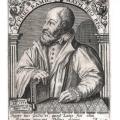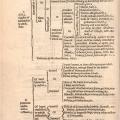404. Robert Goulding on Peter Ramus
A chat with Ramus expert Robert Goulding on the role of mathematics in Ramist philosophy, not to mention some juicy academic quarrels in Paris.
Themes:
• R. Goulding, “Method and Mathematics: Petrus Ramus and the History of the Sciences,” Journal of the History of Ideas 67 (2006), 63–85.
• R. Goulding, “Pythagoras in Paris: Petrus Ramus Imagines the Prehistory of Mathematics,” Configurations 17 (2009), 51-86.
• R. Goulding, Defending Hypatia: Ramus, Savile, and the Renaissance Rediscovery of Mathematical History (Dordrecht: 2010).
• R. Goulding, “Five versions of Ramus’s Geometry,” in Et amicorum: Essays on Renaissance Humanism and Philosophy in honour of Jill Kraye, ed. A. Ossa-Richardson and M. Meserve (Leiden: 2017), 355-87.
• R. Goulding, “Anachronism in the Renaissance Historiography of Mathematics,” in Anachronisms in the History of Mathematics: Essays on the Historical Interpretation of Mathematical Texts, ed. N. Guicciardini (Cambridge: 2021).







Comments
Add new comment